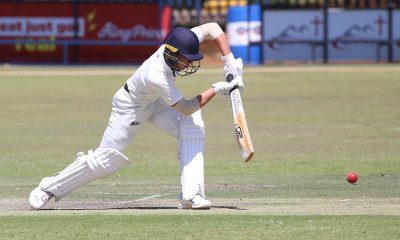Headline
New Covid-19 variants may be ground for surge in cases: Palace

MANILA – The presence of new Covid-19 variants in the Philippines could be “one of the grounds” for the spike in active Covid-19 cases in Metro Manila, Malacañang said Monday.
In a virtual press briefing, Presidential Spokesperson Harry Roque rejected speculations that the government’s decision to reopen the economy has led to a surge in daily recorded Covid-19 cases.
Citing data from the Department of Health (DOH), he said authorities even recorded a low single-day rise in Covid-19 cases after the government decided to further reopen the economy in October 2020.
“After we reopened the economy, Oct. 12 tayo nagbukas ng ating ekonomiya, pababa pa ang mga kaso. At tignan ninyo, matapos ang Christmas Day, pababa pa rin ang mga kaso. Hindi po talaga pagbubukas ng ekonomiya ang naging problema (we reopened the economy on Oct. 12, there was a decline in cases. And if you see, after Christmas Day, cases continued to decline. Reopening the economy is not the problem),” he said.
Roque dismissed claims that the national government’s inefficiency is to blame for the spike in daily recorded Covid-19 cases, stressing that the country has a low 2.06 percent case fatality rate.
“Tignan po natin ang datos. Napababa po talaga natin ang kaso. Itong buwan ng Marso lang sumipa muli. Bagamat paulit-ulit kong sinasabi na hindi po ako eksperto, tingin ko naman yung kumpirmasyon na nasa Pilipinas na yung mga bagong variants, ito’y isa sa mga dahilan ng surge, hindi po dahil palpak ang gobyerno (Let’s look at data. We were really able to lower cases. It was only this March when cases started to rise. Even if I have repeatedly said that I’m not an expert, I think this confirmation that there are new variants in the country is one of the reasons why there is a surge and not because the government is a failure),” he added.
He also refused to blame the public’s non-compliance with minimum health and safety standards for the spike in daily Covid-19 cases, saying many Filipinos continued to follow quarantine protocols.
The DOH last week said the public’s failure to comply with minimum health standards contributed to the recent increase in Covid-19 cases in the country.
“Ayaw kong palaging sinasabi na nagpapabaya ang mga Pilipino kasi kahit saan naman ako pumunta, talaga naman pong sumusunod naman yung nakikita kong karamihan na Pilipino pero dun sa mga di sumusunod, may surge na, kaya dapat siguro sumunod na kayo dahil ayaw natin matamaan tayo (I don’t want to say that Filipinos are being negligent because anywhere I go I see that majority of Filipinos are following protocols but to those who don’t follow protocols, there’s a surge so you should start following them now),” he said.
Last Saturday, the DOH confirmed a new Covid-19 variant called P.3 has been traced in the country but noted that there’s not enough evidence to say whether it is a cause for concern.
The DOH also confirmed the country’s first case of the P.1 variant first discovered in Brazil from samples of an overseas Filipino worker (OFW) who just returned from Brazil.
Aside from the P.3 and P.1 variants, health authorities also discovered in recent samples more cases of the B.1.1.7 variant first detected in the United Kingdom and additional cases of the B.1.351 variant from South Africa.
No stricter quarantine status this month
Despite a surge in active cases, Roque assured that the government will not revert Metro Manila to a stricter quarantine classification because the country’s healthcare capacity can manage the spike in Covid-19 cases.
“Sa buwan ng Marso, possibly hindi pa po dahil gaya ng ating binalita ngayon meron pa tayong 55 percent available ICU beds at meron pa tayong around 60 percent available Covid-19 ward beds at saka 60 percent pa rin ang ating isolation facilities (For the month of March, possibly it won’t revert yet because as I reported 55 percent of ICU beds, around 60 percent Covid-19 ward beds, and 60 percent of our isolation facilities are still available,” he said.
However, Roque said he could not say what would happen next month.
“We do not know what will happen in April kaya nga po binabantayan natin (that’s why we are monitoring this),” he added.
Metro Manila, Apayao, Baguio City, Kalinga, Mountain Province, Batangas, Tacloban City, Iligan City, Davao City, and Lanao del Sur are currently under general community quarantine (GCQ) until the end of the month.
The rest of the country would stay under the least restrictive modified GCQ (MGCQ) until March 31.
As of Sunday, health authorities recorded a total of 4,899 additional Covid-19 cases bringing the total number of infections to 621,498.
Recoveries reached 560,512 after 13,371 more people got well while 63 new deaths brought the death toll up to 12,829.



























